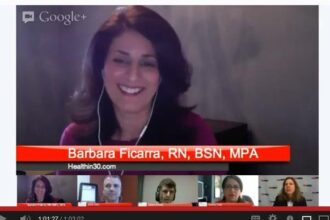If your practice provides or regularly refers out for speech language pathology (SLP) services, you’ve likely noticed that there’s a shortage of providers and a growing client base. Of course, SLPs aren’t the only providers with long wait lists – there are plenty of specialties where patients wait months to get in – but SLPs are part of one of the fastest growing industries in the United States, with projected 18% job growth through 2026. But how can healthcare and education programs, both of which rely heavily on SLPs, meet this demand?
In order to bridge the employment gap between available SLPs and the number of jobs, training programs are turning to a modern approach: online education. Just as many other healthcare professions, like medical assisting, have turned to online educational resources, SLPs are bound for the digital schoolhouse to prepare for the workplace.
Educating SLPs
Despite the name of the field, SLPs treat more than just speech disorders. They also treat feeding and swallowing complications, common in premature infants, older patients who have suffered strokes, and children with oral aversions. To prepare for these many and varied interventions, SLPs need to complete a Masters degree and a clinical internship or fellowship. They also need to pass the national Speech Language Pathology Exam and receive appropriate state licensure.
SLP programs can be completed either online or in person, but online programs are generally more affordable, and in either case, most students will rely on some high-tech tools to master the necessary skills. In particular, since SLPs need to learn a variety of oral exercises for speech and swallowing, most record the proper form to use when practicing. Using a Video Audio Learning Tool (VALT) to record and organize clinical skills allows SLPs in training to study the exercises needed to complete coursework and review them in advance of certification exams.
The Importance Of Intervention
Preparing SLPs for the workplace isn’t just about filling jobs or reducing the length of waitlists; their services are often urgent. Children with speech delays, such as those caused by autism, can fall even further behind their peers when they can’t access SLP services, and in other children, SLPs are the first professionals to diagnose autism. Additionally, even in autistic children who may not be capable of speech, SLP services can help teach alternative communication methods, such as the use of a picture exchange communication system (PECS) or an augmentative and alternative communication (AAC) device.
Another area in which access to SLP services is vital is in the NICU. Premature infants and those with birth defects may require SLP intervention to learn to feed properly and prevent aspiration of fluids. At present, a growing number of NICU programs are training nurses to identify potential feeding problems based on a feeding skills checklist, but NICU nurses have dozens of other tasks to attend to and aren’t specialists in the area. Greater access to SLP services can help prevent long-term feeding tube use, reduce cases of pneumonia from feeding problems, and minimize the likelihood of a serious oral aversion, which can require years of intervention.
Finally, SLPs also work with older adults who have been in accidents, had strokes, or experienced other injuries that impair speech and swallowing. Without these services, adults can experience many of the same problems as children with speech and swallowing problems, yet their needs are rarely considered when we think about the lack of SLPs available.
Desperately Seeking Solutions
Even with supplemental digital resources and access to online Masters degrees, healthcare providers and school systems are desperately seeking solutions to the SLP shortage. Until recently, for example, Indiana schools were authorized to hire people who had completed an undergraduate SLP program and had been accepted into a Masters program to provide services in order to cope with the shortage. Unfortunately, that emergency hiring authorization has expired and without it, Indiana can’t meet the needs of its students. One-fifth of special education students in the state require SLP services, but because schools pay less than nursing facilities and other SLP jobs, this emergency permit program is often the only way to reach sufficient staffing levels.
Indiana is hardly alone in its struggle to meet the demand for SLPs in schools and healthcare facilities, and more states will likely need to develop alternative pathways to certification or new incentives in order to serve the local community. With adequate access to SLPs, large populations can suffer. Lack of SLPs isn’t just about the inability to correct a lisp or a stutter. Early intervention can determine which children eat by mouth or learn to communicate in any way. Training more SLPs must be a top priority.








